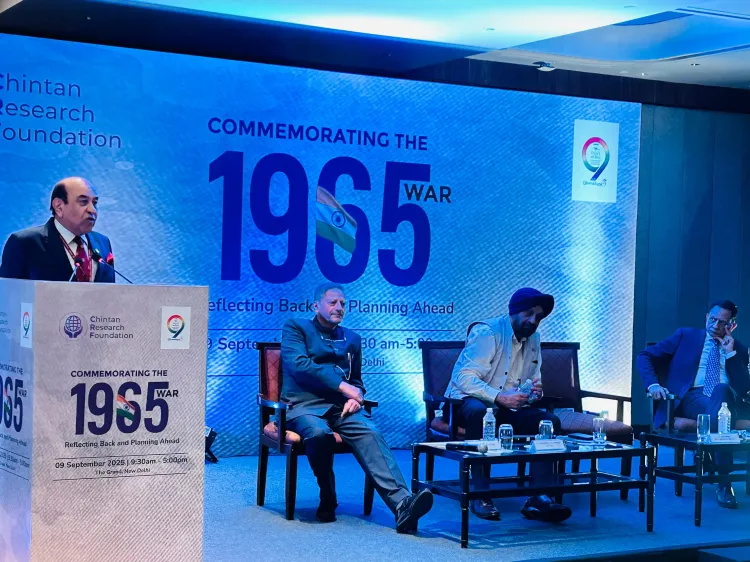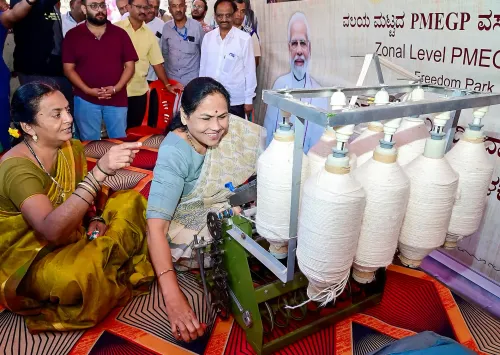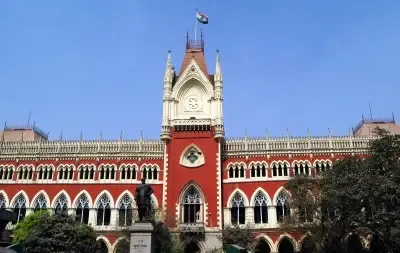How Does the Legacy of the 1965 India-Pakistan War Shape Today's Defence Strategy?

Synopsis
Key Takeaways
- The 1965 war remains a cornerstone in India's defence history.
- The lessons of resilience and unity are more relevant than ever.
- Modern warfare includes new domains such as cyber and space.
- Indigenous innovation is critical for military readiness.
- History serves as a guide for future strategies and preparations.
New Delhi, Sep 9 (NationPress) Sixty years after the India-Pakistan war of 1965, its legacy remains a pivotal influence on India's defence strategy and modernization initiatives.
In commemoration of this significant anniversary, the Chintan Research Foundation (CRF) partnered with the Valley of Words (VoW) in Dehradun to organize a comprehensive conference titled "Commemorating the 1965 War: Reflecting Back and Planning Ahead".
This event assembled veterans, active officers, diplomats, and academics to revisit the war's insights and their lasting importance for India's security.
The 1965 war transcended mere military engagement; it was a test of national resilience during a time when India grappled with equipment and technology shortages.
Encouraged by India's setbacks against China in 1962, Pakistan initiated 'Operation Gibraltar' in Kashmir, followed by 'Operation Grand Slam' aimed at Akhnoor.
India's choice to escalate the conflict into Lahore, Sialkot, and Barmer proved crucial, reversing Pakistan's offensive and shifting the momentum decisively in India's favor.
The ceasefire on September 23 and the Tashkent Agreement of January 1966 concluded hostilities but left the political discord unresolved, setting the stage for future confrontations.
In his opening remarks, Shishir Priyadarshi, President of CRF, emphasized how the war's triumph continues to motivate India's strategic thinking.
Similarly, Sanjeev Chopra, President of VoW, remarked that the audacious decision to extend the conflict beyond Kashmir marked a pivotal moment contributing significantly to India's success.
Lieutenant General PJS Pannu (retd) pointed out that the lessons of resilience, unity, and readiness derived from 1965 remain vital as India faces intricate challenges along its borders.
In his valedictory address, Lieutenant General Ata Hasnain (retd), Former GOC 15 Corps and NDMA Member, stated, "History is not merely about remembrance. Its purpose is to equip us for the future. Theaterisation, joint command, and real-time decision-making have become indispensable for winning future conflicts."
Speakers at the conference concurred that while the war highlighted deficiencies, it also sowed the seeds of self-sufficiency and institutional reform in defence planning.
The discussions also examined how the nature of warfare has transformed since the 1960s.
Today, the battlefield encompasses not only land, air, and sea but also cyber, space, and information domains, with artificial intelligence, unmanned systems, and precision weaponry reshaping military strategies globally.
The push for indigenous research and private sector participation, particularly following the success of Operation Sindoor, was recognized as essential for developing a future-ready military.
The consensus echoed throughout the event was clear: the 1965 war was not only a testament to bravery and sacrifice but also a lesson in foresight.
It served as a reminder that sovereignty is secured not through sentiment but through ongoing vigilance, preparation, and investment in defence.









